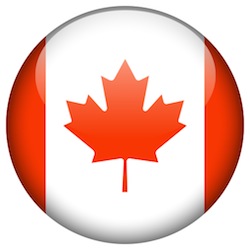FATF evaluates Canada
Chris Hamblin, Editor, London, 22 September 2016

The Financial Action Task Force has evaluated Canada's compliance with its '40 recommendations' against money laundering and terrorist finance.
The task force, whose evaluators paid a visit to the dominion in November, believes that the Canadian authorities have a good understanding of most of Canada’s money laundering and terrorist financing risks. It approves of the quality of the country's annual national risk analysis (an exercise that it is keen to see every country undergo) for 2015 and believes that co-operation and co-ordination between various bodies on the subject are "generally good at the policy and operational levels."
Gaps in the dragnet
All high-risk areas are covered by anti-money-laundering measures except legal counsels, legal firms and Quebec notaries. This constitutes a significant loophole in Canada’s efforts to fight money laundering and terrorist finance. Canada’s financial intelligence unit, FINTRAC, looks at financial intelligence and other relevant information to some extent and law enforcement agencies look at it to a greater extent. The FATF suggests, using obscure language, that it takes the police more time to gain access to this information than it does FINTRAC, and that the police are more comfortable investigating predicate crimes and terrorist finance than money laundering, although it does not say whether this is a bad thing.
FINTRAC receives a wide range of information, which it uses adequately in the FATF's eyes. The standard-setter is, however, critical of the fact that it is not authorised to ask for additional information from any reporting entity. In a land of free speech it seems odd that any person or organisation should require or even want anyone else's permission to ask somebody a question, but the FATF leaves this mystery unsolved.
The most damning observation in the report is the FATF's contention that "law enforcement results are not commensurate with the money laundering risk and asset recovery is low."
Good marks for tackling terrorist finance and co-operating internationally
Canada has made the fight against terrorist finance a high priority. Its authorities ensure that its financial institutions impose sanctions properly, although with the exception of "designated non-financial business and professions" - the strange FATF term for lawyers, accountants, notaries and other 'gatekeepers' who can introduce launderers to the financial system. Charities are monitored well.
Canada’s sanctions against Iran and North Korea are comprehensive, and some success has been achieved in freezing funds of designated individuals.
Financial institutions, including the six domestic systemically important banks, have a good understanding of their risks and obligations in the eyes of the FATF and deal with them adequately.
The FATF believes that Canada generally provides useful mutual legal assistance and is good at extraditing people. The authorities solicit other countries’ assistance to fight terrorist finance and, to a lesser extent, money laundering. Informal co-operation is generally effective and frequent.
Expertise me!
There is some duplication of effort between FINTRAC and the Office of the Superintendent of Financial Institutions (OSFI) in the supervisory coverage of federally regulated financial institutions and the FATF has detected a need to co-ordinate resources and "expertise more effectively."












